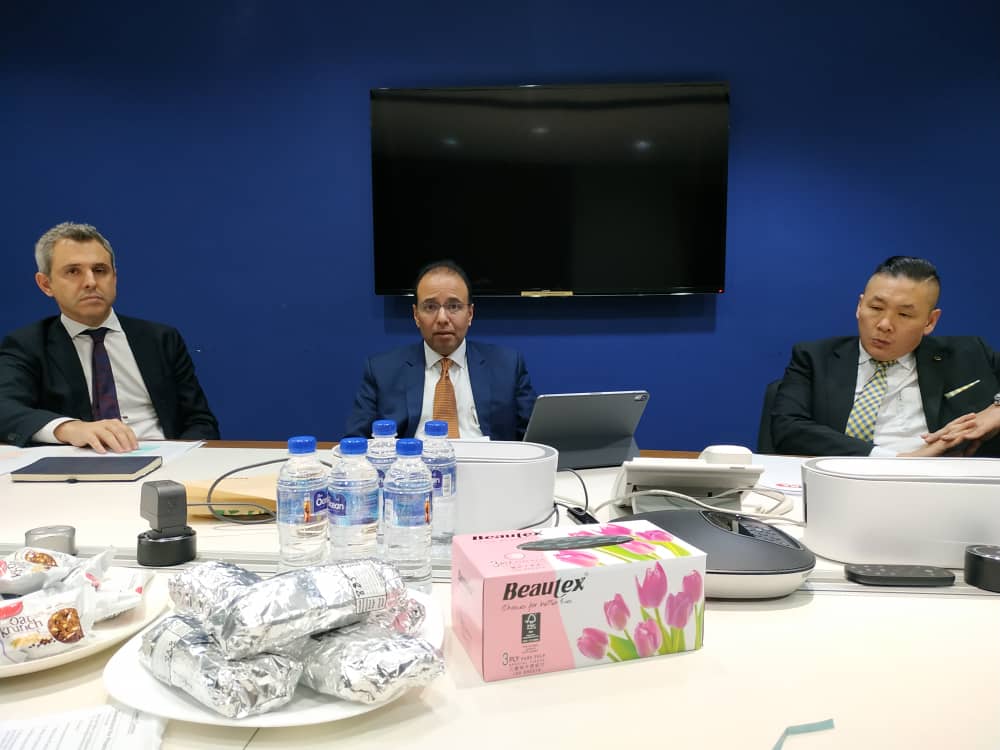PETALING JAYA, Oct 15 — Pharmaceutical manufacturers told the Health Ministry that they were willing to declare wholesale drug prices, in a bid to stave off proposed medicine price controls.
The Pharmaceutical Association of Malaysia (PhAMA) — which represents 48 local and multinational pharmaceutical companies in Malaysia — also revealed that the Health Ministry was planning to regulate the prices of 400 molecules in the first phase of price controls that targets innovative drugs, out of over 1,200 registered molecules that are used in both original and generic medicines.
PhAMA went even further to advocate mandatory wholesale price declarations for all innovative and generic medicines available in Malaysia, beyond the 400 molecules.
“We are willing to declare our wholesale prices to the Ministry of Health,” PhAMA vice president Ashish Pal told CodeBlue in an exclusive interview here.
“If we declare our wholesale prices to the Ministry of Health, a couple of things happen: One, there is very clear transparency, and so there is a very clear intent by PhAMA member companies to be transparent in declaring wholesale prices to the Ministry of Health.
“Secondly, it encourages even greater competition across manufacturers. And Malaysia is a free market, and we would like to continue to invest in a free market for the sake of Malaysian patients. The third is, I think that when you add those two elements together, where you’re talking about price declaration and the fact that we’re willing to do this, it really helps the government understand the value chain clearly,” he added.
The Health Ministry doesn’t always keep track of the prices of medicines when they’re registered in Malaysia as some are decades old; the government only knows the prices of medicines that it buys from drug makers, but not necessarily the prices of treatments that are sold by pharmaceutical manufacturers to wholesalers in the private sector as these are only occasionally declared on a voluntary basis.
Pal claimed that the 400 innovative molecules targeted by the Health Ministry only account for 3 per cent of Malaysia’s total health care cost.
“You can actually imagine the magnitude of the targeted products that they’re looking at versus the entire spend — it’s truly very, very insignificant,” said PhAMA president Chin Keat Chyuan at the joint interview.
He also pointed out that pharmaceuticals only comprised 14 per cent of Malaysia’s out-of-pocket spending on health care in 2017, according to the Health Ministry’s Malaysia National Health Accounts (MNHA) report on national health expenditure from 1997 to 2017, which revealed that 46 per cent and 24 per cent of health care expenses borne personally by patients went to outpatient and inpatient services respectively.
When asked if drug makers would declare their wholesale prices to the public, instead of just to the Health Ministry, Chin noted that the government has also been asking retailers to share the retail price of medicines sold to patients.
“So by having that data, at the same time when companies, we are willing to declare our wholesale to the ministry, they would then have visibility of both wholesale declared price and also what is actually retailed at hospitals, GPs (general practitioners), pharmacies,” Chin said.
“And they should then be the one to decide how to share the information to the relevant stakeholders so that the transparency would be there.”
The PhAMA officials also criticised the Health Ministry’s plan to use external reference pricing (ERP) to benchmark drug prices in Malaysia against seven to eight countries by choosing the average three lowest reference prices to determine the maximum medicine prices allowed here.
The government plans to impose price ceilings at both the wholesale and retail levels, punishing violations with fines or incarceration under the Price Control and Anti-Profiteering Act 2011.
Pal said ERP won’t work in Malaysia because other countries that have used the model, like Australia, South Korea, the United Kingdom, or France, are single-payer health financing systems run by the government, unlike Malaysia’s dual health care system that comprises both the public and private sectors.
“We also believe that proposed implementation of medicine price controls discriminates against foreign companies.”
Ashish Pal, vice president of the Pharmaceutical Association of Malaysia (PhAMA)
PhAMA vice president Patrik Grande said PhAMA member companies have contributed significantly to Malaysia over the past decade, running over 1,000 clinical trials that generate about RM400 million in gross national income that has increased 15 per cent year-in-year.
Pharmaceutical manufacturers have launched 247 innovative medicines in Malaysia since 2010, with 156 ethical products in the pipeline. Fourteen PhAMA members invested about RM84 million in continuous medical education events to upskill health care professionals, besides creating 2,166 high-skilled jobs in clinical research and hires of over 10,000 talents in Malaysia.
Ten pharmaceutical multinational corporations have also set up regional and global shared services hubs in Malaysia that provide IT, finance, and procurement services, hiring over 1,600 medium- and high-skilled employees. Patient assistance programmes by PhAMA member companies benefited about 12,000 patients, with a total contributed value of RM99 million.
“In summary, these are investments that create real jobs and create contribution to the economic growth of a country,” Grande told CodeBlue.
It’s important to remember that if we have medicine price controls, it would have an impact in that ecosystem.”
Patrik Grande, vice president of the Pharmaceutical Association of Malaysia (PhAMA)
Pal said global drug makers’ investments into Malaysia span decades, where more and more companies are looking at bringing in Phase 1 and 2 clinical trials here.
“And so, if you look at it from that perspective, this is truly the evolution and really creating tremendous opportunities for STEM graduates,” he said, referring to science, technology, engineering and mathematics graduates.
“We are looking as pharma to really continue to invest in Malaysia for the sake of Malaysian patients and create high-value and high-skilled jobs.”








